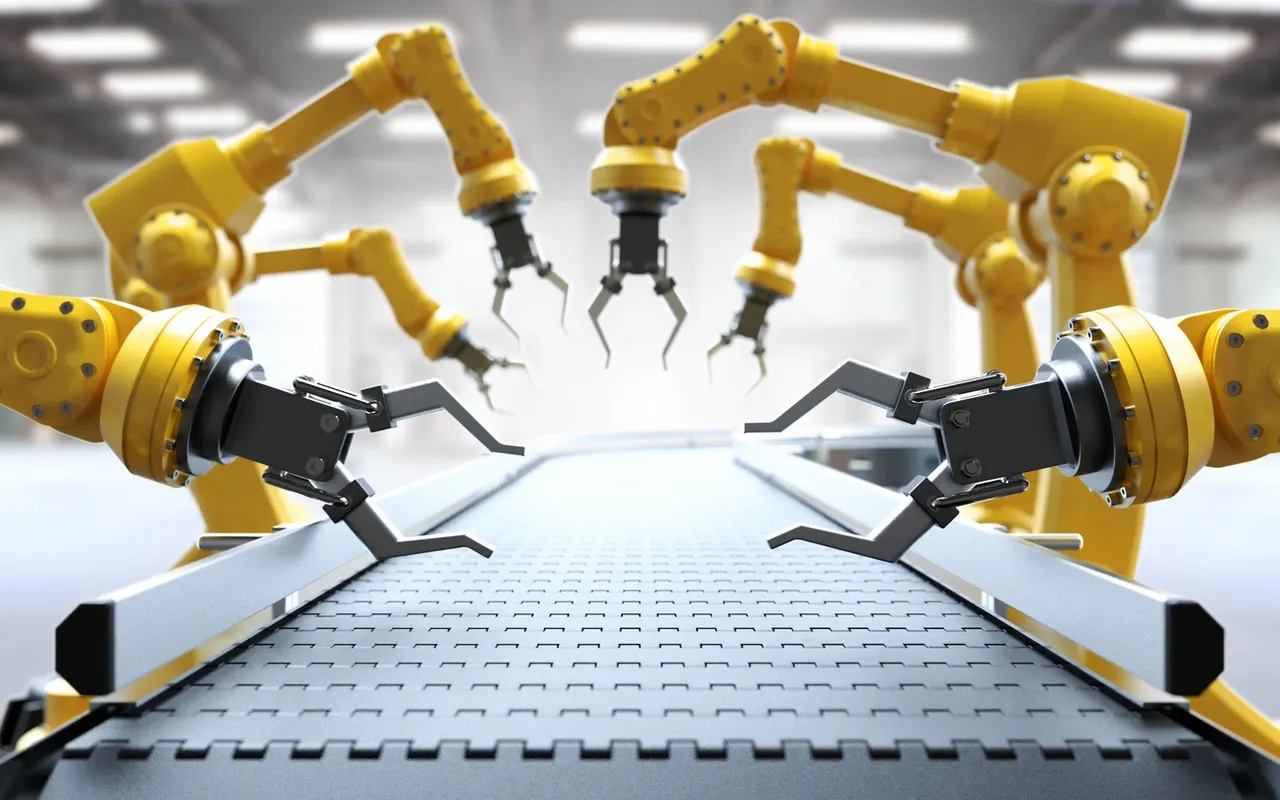AI and ML: The Future of Manufacturing

Artificial Intelligence (AI) and Machine Learning (ML) are driving significant transformations in manufacturing.
AI and ML work by analyzing vast amounts of data from various sources, including machines, sensors, and production lines. By leveraging this data, AI can identify patterns and trends that humans may overlook, allowing manufacturers to make informed decisions and optimize their operations in real-time.
Machine learning further enhances manufacturing by enabling continuous process improvements. With the ability to adapt and learn from new data, ML algorithms can identify inefficiencies, optimize production schedules, and improve workflows over time. This data-driven approach leads to higher productivity, better resource allocation, and improved product quality.
These technologies enable manufacturers to improve efficiency, reduce costs, and enhance product quality through smarter decision-making and automation. Here's how:
Predictive Maintenance: Reduce unexpected downtime by predicting machine failures before they happen.
Predictive maintenance uses AI and ML to analyze data from sensors placed on equipment. By continuously monitoring the health of machines, AI can detect early signs of wear and tear, such as changes in vibration, temperature, or pressure. The system then predicts when a failure might occur, allowing manufacturers to schedule maintenance proactively. This reduces the need for emergency repairs, minimizes costly downtime, and extends the life of machinery. Rather than relying on scheduled or reactive maintenance, predictive maintenance ensures that resources are used more effectively, ultimately increasing the uptime of production lines and reducing operational costs.
Improved Quality Control: Automate quality checks and enhance product consistency.
AI and ML can automate quality control processes by inspecting products in real-time during production. Using computer vision and sensor data, AI systems can detect defects or variations that may not be visible to the human eye. These systems can continuously monitor product quality throughout the manufacturing process, ensuring consistency and precision. By automating quality checks, manufacturers reduce the risk of human error, decrease waste from defective products, and ensure that only products meeting high-quality standards reach customers. This leads to greater customer satisfaction and fewer returns due to quality issues.
Cost Efficiency: Optimize production schedules and resource allocation to reduce costs.
AI and ML enable manufacturers to optimize production schedules by analyzing historical data, demand forecasts, and real-time production conditions. This data-driven approach helps balance workloads, reduce idle times, and ensure resources are allocated effectively. For instance, AI can suggest the most efficient machine usage, helping manufacturers to minimize energy consumption and raw material waste. ML algorithms continuously learn from data, making adjustments to the production schedule that drive down operating costs, improve overall productivity, and help businesses stay competitive in a cost-sensitive market. With better planning and resource management, manufacturers can also avoid overproduction and unnecessary stockpiling of inventory.
Data-Driven Decisions: Leverage data insights for smarter, more strategic decision-making.
AI and ML empower manufacturers to make more informed decisions by analyzing vast amounts of data from multiple sources. This includes data from production lines, inventory management systems, supply chains, and even customer feedback. AI can provide real-time insights into performance trends, identify bottlenecks in production, and suggest improvements to workflows. By using these insights, manufacturers can make strategic decisions on everything from inventory management to equipment upgrades and process improvements. Additionally, this data-driven approach allows businesses to anticipate challenges before they arise, improve supply chain management, and refine long-term strategies, ultimately enhancing overall operational efficiency and profitability.
As these technologies continue to advance, now is the time for manufacturers to invest in AI and ML solutions to stay ahead of the competition. By embracing automation and data-driven decision-making, manufacturers can unlock new growth opportunities, streamline operations, and create more value for their customers. If you're ready to enhance your manufacturing processes and drive innovation, we are here to help.
Our team specializes in delivering tailored AI and ML solutions that align with your unique business goals. Contact us today to explore how we can collaborate on projects that will transform your operations and position your company for long-term success.